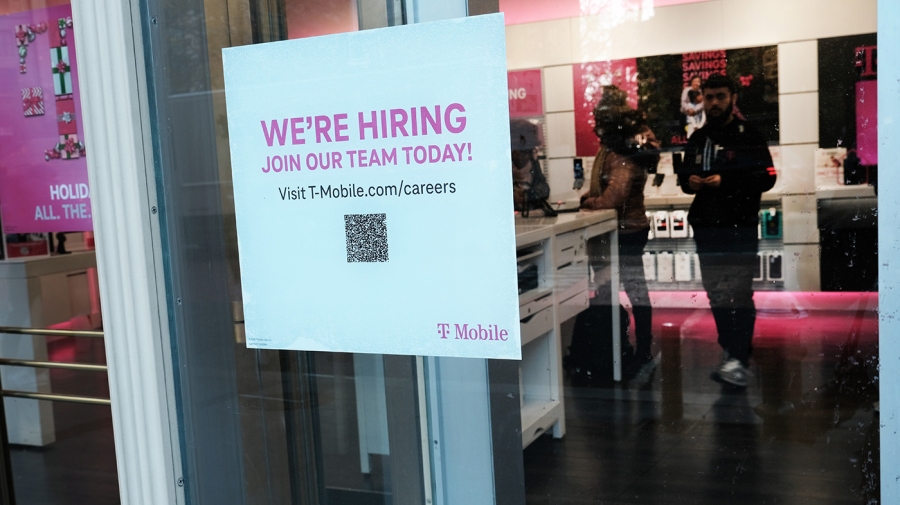Just In | The Hill
A federal agency is trying to make it easier for employees to switch jobs without repercussions. We’ll also look at economic concerns among business leaders, as well as how much you spent online shopping last year.
But first, find out why the House Speaker showdown bodes poorly for raising the debt ceiling.
Welcome to On The Money, your nightly guide to everything affecting your bills, bank account and bottom line. For The Hill, we’re Sylvan Lane, Aris Folley and Karl Evers-Hillstrom. Someone forward you this newsletter?
FTC unveils proposal to ban noncompete clauses
The Federal Trade Commission (FTC) on Thursday rolled out a proposal to prohibit employers from implementing noncompete clauses that limit workers’ ability to change jobs.
Noncompetes, which are used in a broad range of industries, make it difficult for employees to work for a competitor or start their own business for a period of time after they leave employment.
The FTC said that the rule could boost wages by nearly $300 billion per year by giving workers more power to find a new job or using the threat of leaving to demand a raise.
Between 36 million and 60 million private-sector workers are subject to noncompetes, according to an estimate from the Economic Policy Institute.
The rule’s introduction stems from a Biden executive order aimed at boosting competition and worker power.
Still, the proposed rule will face legal challenges from business groups that say the FTC doesn’t have the authority to impose the ban.
Karl has more here.
LEADING THE DAY
Consumers spent more than $200B online during holiday season, breaking record
Consumers spent more than $200 billion online during this past holiday season, breaking another record for e-commerce this season.
Data from Adobe showed that online shopping from Nov. 1 to Dec. 31 yielded $211.7 billion, a 3.5 percent year-over-year increase.
The five days between Thanksgiving and Cyber Monday contributed
$35.3 billion of that total, but data shows consumer spending was persistent throughout the entire season, according to an Adobe release.
Shoppers spent more than $3 billion in aggregate on 38 days of the season, on track with what happened last year. But only 25 days of the 2020 season surpassed
$3 billion, the release states.
The Hill’s Jared Gans breaks it down here.
HIGH HOPES
Business leaders see profits rising despite recession fears: survey
Majorities of midsize business leaders expect their sales and profits to increase this year but also believe the U.S. could slip into recession, according to a survey conducted by JPMorgan Chase.
In an online survey of 791 business owners and executives, 65 percent of respondents said they believe a recession is likely and only 8 percent said they were optimistic about the economy in 2023.
Even so, 63 percent of business leaders said they expect to see higher sales and 51 percent are expecting higher profits next year despite the dour outlook. Only 14 percent of respondents expected revenue to fall and 24 percent expected profits to fall in 2023.
“Following the challenges of the last few years, it’s encouraging to see the resilience of small business owners and leaders,” said Ben Walter, CEO of Chase Business Banking, in a Thursday statement.
“The next economic cycle is always right around the corner,” Walter said.
Sylvan explains here.
MAKE OR BREAK
Most manufacturers predict recession in 2023: survey
Sixty-two percent of manufacturers expect the U.S. economy to enter a recession this year, according to a survey conducted by the National Association of Manufacturers (NAM).
The survey also found that 69 percent of manufacturers have a positive outlook for their company, the lowest figure since the third quarter of 2020. They cited struggles in attracting and finding workers, continued supply chain snags and high raw material costs.
It’s the latest warning sign that the U.S. manufacturing industry is slowing down amid weakening demand and higher borrowing costs stemming from the Federal Reserve’s interest rate hikes.
Karl tells us why here.
Good to Know
Bed Bath & Beyond (BB&B) reported concerning financial figures on Thursday, warning investors that bankruptcy may be on the horizon, which sent the company’s stock price plummeting.
Preliminary earnings reported by BB&B showed slowing sales, with the $1.3 billion figure for the third quarter being about a third lower than the year before. The company also noted lower foot traffic through its stores.
Other items we’re keeping an eye on:
New York City Uber drivers are striking for a second time after the company blocked a pay raise last year.
Peloton reached a settlement with the U.S. Consumer Product Safety Commission Thursday over its defective treadmills that caused injuries and the company’s failure to report the concerns to the commission.
That’s it for today. Thanks for reading and check out The Hill’s Finance page for the latest news and coverage. We’ll see you tomorrow.
Overnight Finance, Finance, Policy Read More
Author Profile
Latest entries
 ScienceApril 19, 2024Red cabbage juice may ease inflammatory bowel disease
ScienceApril 19, 2024Red cabbage juice may ease inflammatory bowel disease HeadlinesApril 19, 2024Fox News ‘Antisemitism Exposed’ Newsletter: Chaos at Columbia and Ivy Leagues' moral corruption
HeadlinesApril 19, 2024Fox News ‘Antisemitism Exposed’ Newsletter: Chaos at Columbia and Ivy Leagues' moral corruption HeadlinesApril 19, 2024Day 3 of Trump New York hush money trial
HeadlinesApril 19, 2024Day 3 of Trump New York hush money trial ScienceApril 19, 2024Tweaked science textbook diagrams boost student understanding
ScienceApril 19, 2024Tweaked science textbook diagrams boost student understanding

